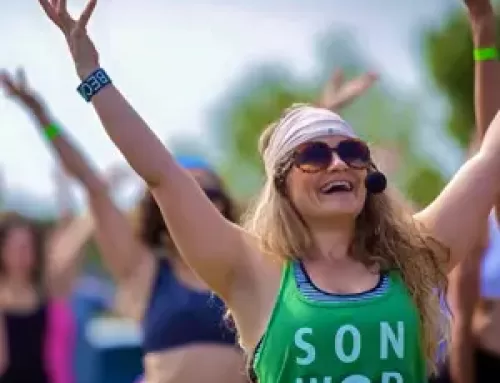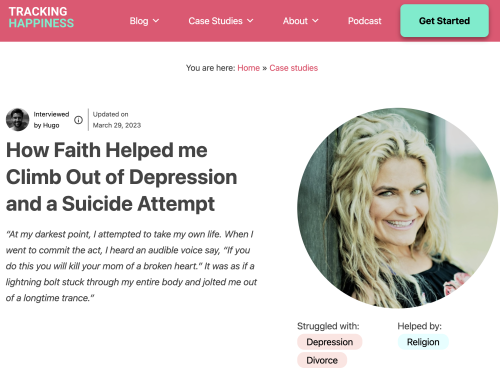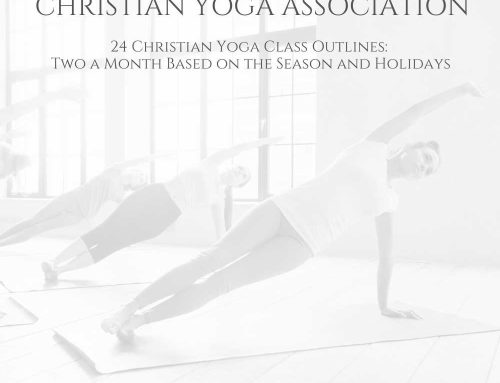Asa part of my series about people who made the journey from an addict to an entrepreneur, I had the pleasure to interview Michelle Thielen; Educator, Speaker, Author and Founder of YogaFaith. She has been teaching dance, yoga and somatic movement for over 20 years, including her time with the NBA and WNBA in Portland, Oregon. Michelle is based in Seattle and travels the globe certifying others in yoga and somatics. She is also a meditation and nidra specialist, used extensively in her work with trafficked children and other abuse victims. Michelle is passionate about seeing the world healed; mind, body, spirit and soul!
Thank you so much for doing this with us! Can you describe your childhood for us?
I had a predominantly blissful childhood. Two loving parents, two brothers, great friends throughout school life and a praying mom who always took us to Sunday school. She allowed all three of us to pursue the things we were passionate about. Each of us began piano lessons which would eventually be replaced with various sports and activities. The three of us grew up very close resulting in me becoming a ‘tom-boy.’ It wouldn’t be until after college that I wore pink for the first time!
Can you share with us how were you initially introduced to your addiction? What drew you to the addiction you had?
I started hanging out with the wrong crowd in seventh grade and was introduced to marijuana and skipping school at this young age. Initially, I began using it because they were, not because I had a need for it.
I have a pretty outgoing personality, marijuana suppressed that, so it wasn’t all that enjoyable for me, but I continued to use it.
What do you think you were really masking or running from in the first place?
I was an excellent student, always on the honor roll with many achievements both in and out of school. I wanted to break out of the mold and try something else for a change. I had no idea what this one decision would ultimately cost me.
Can you share what the lowest point in your addiction and life was?
Marijuana eventually led to more abusive drugs. In high school I became addicted to any stimulant or ‘upper.’ Later, after college I would also become addicted to prescription medicine due to several car accidents. I would often use a combination of cocaine and Vicodin.
The lowest point was sniffing cocaine by myself in the restroom of my job at an automotive parts company.
Can you tell us the story about how were you able to overcome your addiction?
The next time I went to work at the automotive store, my boyfriend and his friend Ryan were dropping me off. I remember taking my ‘stash’ and Ryan looked at me and said, “If you can’t work this 5-hour shift without that, it’s time for you to stop.”
I will never forget the look in his eyes. He was serious and I knew he was right. That night, I left the drugs with them and began gaining a little control over my addiction. A little bit more day by day, until it didn’t have control over me. I began using only in social gatherings, like those who just have a casual cocktail with friends.
I could function well in my addiction. However, from all the pills, crank and cocaine, I began getting a bloody nose at work and other public places. Not only was this embarrassing and people wanted to know ‘why’ and if I was okay, but it was the surest sign that if I wanted to be healthy and live a long life, I was going to have to quit doing everything-as in, quit altogether.
How did you reconcile within yourself and to others the pain that addiction caused to you and them?
Addiction is a selfish act. Whether you believe it’s a choice or a disease, one who is addicted is only concerned with “self.” I was no exception. I had cut off those who truly love and cared for me. I had disrespected and disregarded life’s most important relationships. It was hurtful to them, and I would eventually come to learn how pride had cut off everyone and everything that was valuable in my life.
“Addiction kept me longer than I wanted to stay and cost me more than I ever imagined paying.
A vital part of recovery is your support system. If you don’t have this system in place, an addict will fail at recovery. I began the process of mending these broken relationships and surrounding myself with trustworthy and supportive people. It is ultimately up to the addict to begin ‘cleaning up their side of the street.’ If you’re familiar with the 12 Steps of AA, Steps 6 through 8 happened to be something I focused on, long before I knewabout the actual steps.
Step 6: Humbly ask God to remove your shortcomings.
Step 7: Make a list of all persons you’ve harmed and became willing to make amends to them all.
Step 8: Make direct amends to such people wherever possible, except when to do so would injure them or others.
All the 12 steps are equally important. I had to tread lightly with step 8. Though I wanted to release or make direct amends with many people, it wasn’t safe for me to revisit certain environments or step into old atmospheres. So, I would write their name on a piece of paper and break bread over their name. This one act allowed me to forgive them without putting myself in a dangerous situation. I was finally able to release them and forgive myself. Forgiving yourself is sometimes the most challenging part of addiction and recovery. It’s a life-changing gift you can give yourself. I say finally because addiction led me into a deep, hopeless depression that caused me to lose everything-my job, marriage and much more, but that is for another time.
Addiction caused me to have blurred vision. I was lost and deceived in my own thinking. I had no support system, accountability or wise council speaking truth into my life. I was stuck with my own isolated thoughts, which caused other terrible decisions to be made.
These decisions caused my life to spiral downward quickly. Forgiving myself and others was the most difficult and longest process I have ever gone through. Today, I can help people save time, money and heartache from all that I have been through, and I do!
When you stopped your addiction, what did you do to fill in all the newfound time you had?
I began hanging around positive influences, going to church with my mom, getting back to healthy habits such as exercise and proper nutrition. Nutrients in the body is another vital component to recovery, good sleep and an overall positive wellbeing.
I had to get back to basics. It’s important to ask yourself what matters to you. What do you like to do most? What would you be doing if you didn’t get paid to do it? What makes you most happy?
I began dancing again, taking classes at my gym and being a part of community (and life) once again. Because the drugs had eaten my muscle mass, I had to work hard at getting healthy again.
Can you tell us a story about how your entrepreneurial journey started?
In 2008 my husband and I moved from Portland, Oregon — the city we both grew up in, to Seattle, Washington, where neither of us knew anyone. He was building a business from the ground up and then there was me, once again without my support system. I kept trying to get these mundane jobs in my field of architecture and design, trying to do everything in my own strength and in my own way.
After running into numerous brick walls and a serious car accident, I was forced to push the reset and pause button in January 2013. I went on a 21 day fast to soul search and find out why on earth I was born.
Out of this fast, a Christian Yoga School was born. Years later and much hard work, it has become an international accredited leader in the industry. It has been such a gift to use my passions and skillsets, while training up leaders all around the world.
What character traits have you transferred from your addiction to your entrepreneurship. Please share both the positive and negative.
The most valued character trait came out of my recovery. The sheer determination to not let something have control over my mind, body and decisions. The habit of putting one foot in front of the other day by day. Doing my best, not being attached to the outcome and having grace toward myself and compassion towards others-because I never know their backstory. Before this journey I never understood addiction or depression. I now fully understand both-intimately and I’m able to help others because I have walked in their shoes.
Why do you think this topic is not discussed enough?
There are many things we need to discuss more and bring out of darkness and into the light. Addiction, like so many other issues, is attached to shame and guilt. We believe we are bad people, unforgivable, or that nobody else is going through what we are. We begin to live life from a very skewed perspective losing our identity and worth-we then make decisions based on our feeling of worthlessness. These are the [very] reasons we need to be talking about them more. Because millions of people are going through the same thing and they need help, guidance, love and acceptance. We can be that person who saves one life or a thousand lives. It could be as simple as letting them know their value and worth isn’t based on their past mistakes.
“You are not what you did.
Can you share three pieces of advice that you would give to the entrepreneur who is struggling with some sort of addiction but ashamed to speak about it or get help?
- You must confide in someone you trust. You need accountability and someone to check in on you. You cannot and will not overcome any addiction alone.
- No substance could ever replace the ‘high’ of success. You have everything you need to accomplish your dreams, look within-not outside of yourself.
- The path to a dream is riddled with potholes and storms. There will always be days where you will want to “check out,” “take the edge off,” escape or numb out. Never give up. You have come way too far to give up now. Just keep putting one foot in front of the other, one day at a time, you are going to make it-I promise!
I realized addiction almost made me miss this grand life. It led me into a depression so dark I went to swallow pills to escape it. I am still living just to tell you there is hope! Life will get better if you want it to. The reason you still have air in your lungs is because there is a grand plan for you, but you must stick around to LIVE IT!
How can our readers follow you on social media?
Thank you so much for your insights. That was really inspiring!
Thank you for the opportunity!
Authority Magazine
In-depth Interviews with Authorities in Pop Culture, Business, Tech, Wellness, & Social Impact
WRITTEN BY
Author of Chasing The High; Creator of F.A.T.E. — From Addict To Entrepreneur
Originally posted on Authority Magazine








